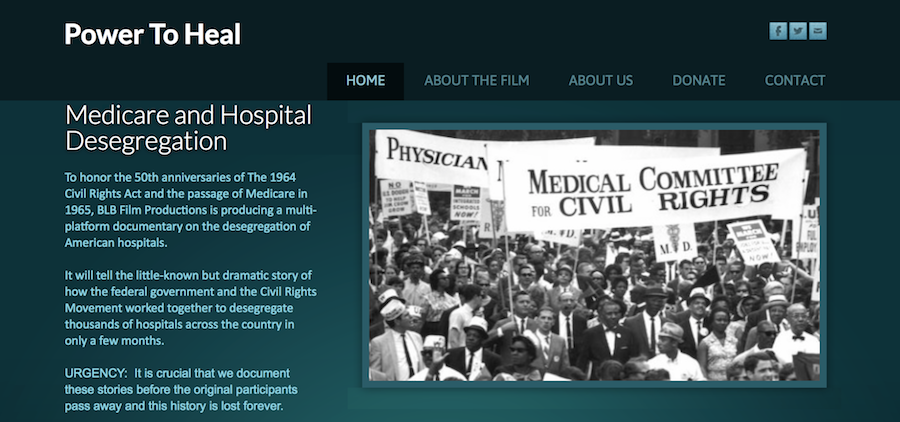Medicare's Civil Rights Roots
Steve Sternberg's "Desegregation: The Hidden Legacy of Medicare" [July 29, 2015] draws attention to the revolutionary impact that Medicare had in racially integrating the U.S. health care system. Sternberg is right that "Medicare ranks among the most important civil rights achievements in U.S. history." For that very reason, we are working on a documentary that will show how Medicare and its role in hospital desegregation are part of the civil rights movement. As Sternberg helps to make clear, health care and racial justice are intricately intertwined.
Before Medicare, the health care system was one of the most powerful mechanisms of racial inequality in the United States. It told black patients – who turned to it in times of great need and extreme vulnerability – that their lives were not valued the same as white lives. And in doing so, it encouraged black Americans to distrust the medical establishment and the federal government, which contributed substantially to hospital construction, medical research and medical education.
Medicare changed all this. With it, the federal government transformed from an abettor of Jim Crow health care to an avenger of its victims. Not only did it provide funding for thousands of elderly black patients that had previously been unable to afford medical care, but it required that hospitals meet national standards of health, safety and civil rights. It sent an army of federal inspectors to ensure that hospitals certified to receive Medicare funds were desegregated, making sure their communities knew that they were available to all. All at once, every hospital in the country was required to prove that it did not racially discriminate against patients, doctors, nurses or hospital employees.
Only the federal government has the power to generate such immediate and widespread change. But it did not achieve this victory alone. It relied on the strength and guidance of established networks of medical civil rights activists across the country – communities of reformers, decades in the making. Black doctors and dentists – who had long been civil rights leaders in their local communities – and other activists pushed the federal government to action and kept it on course. The Medical Committee for Human Rights, the so-called medical arm of the civil rights movement, gathered information about civil rights violations in hospitals for the U.S. Department of Health, Education and Welfare and helped trained HEW hospital inspectors.
Medicare also benefited from the legislative opportunity and spirit of social justice generated by the civil rights movement. David Barton Smith, professor emeritus at Temple University, argues that "Medicare was a gift of civil rights movement," which infused the country with a quest for racial justice and progressive reform. Medicare could only be used to desegregate hospitals because of the Civil Rights Act of 1964, one of the greatest legislative victories of the civil rights, which banned discrimination in any facilities receiving federal funding.
Medicare did not erase racial discrimination in our health care system, but it did create a national platform for promoting equal health opportunity. Reframing the story of the civil rights movement to include Medicare expands our understanding of how Jim Crow segregation operated to dehumanize black Americans. It draws our attention to the entangled relationship between health and race, offers the possibility for better understanding why racial health disparities persist, and shows why government and progressive activists need to work together to advance racial justice in health care and beyond.
